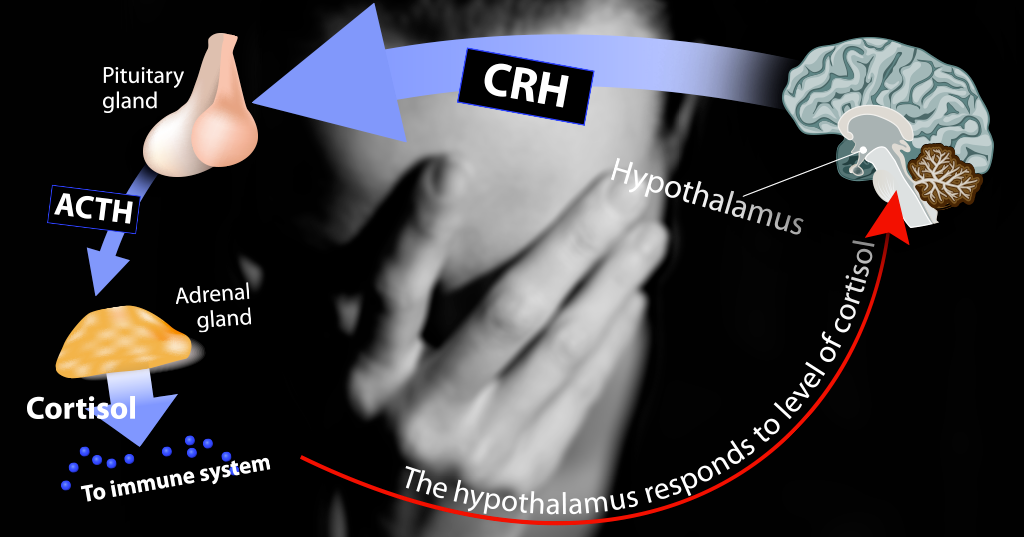
An aid against stress from the extract of Scutellaria lateriflora L.
Fatigue, mood swings, headaches, insomnia, weight changes and other common symptoms of stress are affecting more and more people around the world: according to a study by Assosalute before the pandemic, 85% of Italians had stress-related disorders; on the other hand, the WHO (World Health Organization) has estimated anxiety-related disorders to be the most common mental disorders worldwide.
The Covid-19 pandemic, with its economic and social consequences, has further exacerbated the situation.
Our body's response to stress and the role of cortisol
It is important to understand that stress is not negative in itself; on the contrary, it helps us coping with daily challenges. When it is in excess, however, it can have serious impacts on our physical and mental health.
Our body reacts to stressors by releasing cortisol from the adrenal glands. This is why cortisol is also known as the 'stress hormone'.
The concentration of cortisol in the blood is accurately regulated by the hypothalamic-pituitary-adrenal (HPA) axis. The activation of this cascade enables the 'fight-or-flight' response: cortisol, by increasing the metabolism, provides a surplus of glucose to the body, while it reduces energy-consuming processes, such as the immune system.
If stress continues over time, an excessive secretion of cortisol can have detrimental effects on various functions, such as the immune, endocrine, cardiovascular, and central nervous system. It can also cause sleep disorders, with difficult sleep onset or frequent awakenings, as well as a decrease in bone mineral density, with a risk of osteoporosis.
Plants of the genus Scutellaria promote relaxation and sleep
Plants of the genus Scutellaria have a long traditional use in herbal medicine to promote relaxation and sleep, but only S. lateriflora L. is recognized for this purpose by the Italian Ministry of Health guidelines on the physiological effects of botanicals used in food supplements. Furthermore, Scutellaria can be adulterated with morphologically similar but hepatotoxic species of the genus Teucrium; in this case, DNA barcoding proves to be a valuable and safe tool for identifying the correct botanical species.
A new study on BlueCALM®
Now a new study published in January 2024 in the scientific journal Molecules gives a scientific contribution to the traditional use, demonstrating that a chemically characterized extract of Scutellaria lateriflora L. (BlueCALM®) has a significant inhibitory effect on cortisol release in an in vitro model. For more details on this study also read our news.
To learn more about BlueCALM®, our dry extract standardized to contain 10% baicalin, from an Italian supply chain (located in Lombardy and Trentino-Alto Adige), identified by DNA barcoding, download our brochure.